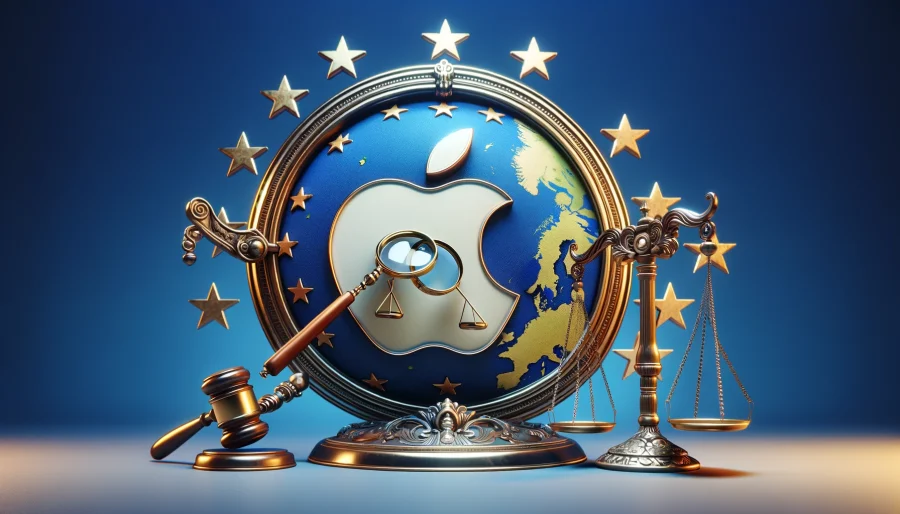The EU has begun the preliminary stages of a formal investigation into Apple. This move, as reported by The Financial Times, comes in light of Apple’s recent decision to restrict access to certain applications that circumvent its App Store, thereby intensifying the scrutiny over the tech giant’s business practices.
The crux of the issue lies in Apple’s announcement that it will soon disable access to Progressive Web Apps (PWAs) within the EU. PWAs allow companies to develop applications accessible as webpages, featuring an icon on a mobile user’s home screen, thus bypassing traditional app stores. Apple’s rationale for this decision is to align with the Digital Markets Act (DMA), stating that non-Safari browsers pose unacceptable security and privacy risks under the law.
However, this move has raised concerns among developers and the European Commission, primarily because it eliminates a pathway for developers to avoid Apple’s 30% commission fees on App Store purchases. In response, the EU’s competition regulators have dispatched inquiries to developers to ascertain the impact of Apple’s decision, marking the onset of what could lead to an in-depth probe.
The European Commission has confirmed its focus on ensuring compliance with the DMA, emphasizing the examination of Apple’s actions regarding PWAs. Apple, while declining to comment directly on the investigation, has expressed regret over any inconvenience caused to developers and users, downplaying the change as a compliance measure with the DMA that would affect a minimal number of users.
This investigation is part of a broader EU initiative to regulate the dominance of Big Tech companies, with the DMA being a cornerstone of this effort. Apple, in particular, faces scrutiny over its $85 billion-a-year services business. In addition to the probe into PWAs, the EU is poised to levy a significant fine against Apple for alleged violations related to its music streaming services, highlighting the regulatory challenges facing the company.
In an attempt to comply with the DMA, Apple has announced changes to its iOS mobile software in Europe, such as permitting the download of apps from alternative sources and the use of different payment systems. However, these changes have been met with criticism from competitors like Meta and Microsoft, who argue that Apple’s inclusion of additional fees could deter the establishment of alternative app stores.
As the EU tightens its regulatory grip, the potential for significant fines looms large for companies found non-compliant with the DMA. With the March 6 deadline for compliance approaching, the outcome of this investigation could have far-reaching implications for Apple and the broader tech industry, underscoring the EU’s commitment to curbing the influence of Big Tech through stringent regulation.









